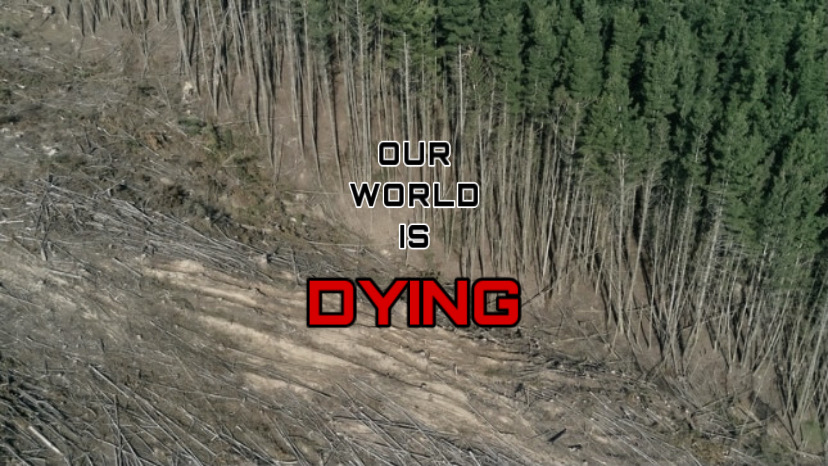Climate change: heating toward harm
Throughout 2021, extreme weather around the world intensified, and since the 1980s, climate-related extremes have increased by 83%. Despite the severity of global warming, humans can mediate the effects by acting quickly. A huge step requires reducing the use of fossil fuels and the burning of greenhouse gasses. In support of this issue, President Joe Biden recently re-entered the Paris Agreement and proposed his environmental plan at the Leaders Summit on Climate. NC students can also support our planet by remaining educated on global warming.
August 25, 2021
The amount of climate-related disasters has increased by 83% since the 1980s. The burning of fossil fuels mixed with deforestation represents a large reason for this dramatic increase, which humans must immediately take responsibility for.
Within 2021 alone, fires have continued terrorizing California and Greece while floods broke loose in Germany and other parts of Europe. However, the crises continue beyond these borders, with diverse weather extremes currently affecting countries all over the world.
“I’ve seen a lot of crazy weather in my career, but I cannot remember a time where there were so many extremes in so many parts of the world simultaneously,” CBS News meteorologist and climate specialist Jeff Berardelli said.
In addition to California, wildfires continue to destroy millions of acres of land in other parts of the Pacific Northwest, Mediterranean, and Canada. Columbia University climate scientist Dr. Adam Sobel shared his concern for the intensity of the extreme weather our planet currently faces.
“It feels like the reality is outpacing our expectations,” Sobel said.
Despite the severity of our planet’s state, a chance of reversing the impacts of climate change still remains. Although attempting to slow the rate of larger issues such as deforestation may seem overwhelming, every small step counts.
“Every increment of temperature rise matters, so less warming will help lessen disasters. That will require steps like rapidly reducing methane emissions in the short term and greenhouse gases overall,” Berardelli said.
On April 22, 2021, President Joe Biden announced his environmental plan during the Leaders Summit on Climate. Biden brought America back into the Paris Agreement with the intent of reversing climate change and emphasize the seriousness of this environmental crisis.
“As part of re-entering the Paris Agreement, [President Biden] also launched a whole-of-government process, organized through his National Climate Task Force, establishing this new 2030 emissions target – known as the Nationally Determined Contribution (NDC,) a formal submission to the United Nations Framework Convention on Climate Change (UNFCCC),” a statement by the Biden-Harris Administration said.
According to the statement, President Biden intends to meet his proposed goals with measures like making transportation more efficient, cutting energy costs for families, creating nature-based solutions, addressing carbon pollution, and focusing heavily on innovation. Additionally, his administration explains the application of these intentions and the specifics of what our president holds for the future.
While President Biden’s environmental plan represents change on a large scale, students at NC can also contribute to the reversal of climate change through simple activities. Examples of productive activities include turning off the lights, taking shorter showers, walking or carpooling to school, and staying educated on the subject.
“When young people care about an issue, it shows how important it is, and when we all rise up together we can make serious changes. This is so important because when climate change is going to be at its worst, our generation is going to be in charge of it,” NC junior Madeline Shell said.







